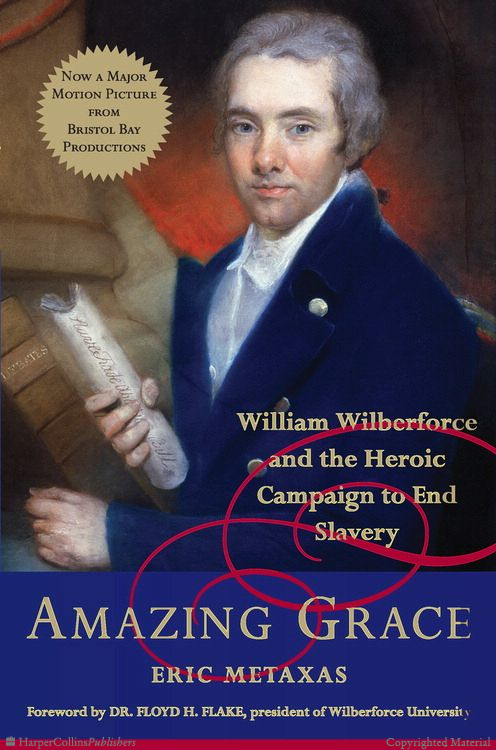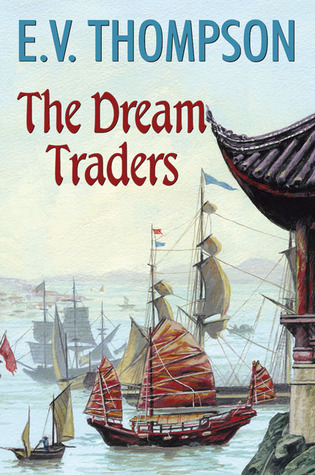
This was one of the few books I’ve read where I was genuinely sad when I turned over the last page. I had met someone special, a friend, a good man, a hero really. I had walked with him through his extraordinary life and I guess I just didn’t want it to end. Who was this guy? His name was William and he changed the world.
The idea of ending slavery was completely out of the question in the 1700’s. Slavery, it was thought, was inextricably intertwined with human civilization. It was the way things were supposed to be. Slavery was economically necessary and morally defensible. Wilberforce managed to destroy an entire way of seeing the world! He vanquished the very mind-set that made slavery acceptable and allowed it to survive and thrive for millennia. Slavery does live on today but for the Western world the idea that slavery is somehow good is completely dead thanks in large part to this great Christian statesman.
The Great Change — William was not always so passionate for a noble cause. Before the “great change” as he called it, William was a man given over to selfish ambition and personal pleasure. He was charming, witty, and popular and he naturally used these personal assets for self advancement. That all changed when he invited the smartest person he knew to accompany him on a long trip to the south of France. Milner was brilliant like Wilberforce, but what Wilberforce didn’t know, and certainly didn’t expect was that Milner was a committed follower of Jesus. “Methodists” as they were called in that era were ridiculed for their stupidity and backwardness, and yet here was Milner every bit the intellectual equal to Wilberforce, but unyielding in his confidence in Jesus. All of Wilberforce’s objections to living faith, were met with stunning counter measures. Eventually this was the fork in the road for our man. Wilberforce became a Christian. He naturally concluded that he must give up his political career, since he felt it was impossible to be a Christian and a politician at the same time. That assumption was called into question when he had a pivotal conversation with John Newton, the famous slave trader turned pastor. From Newton’s point of view, William was being uniquely positioned by God to change the world. The die was cast, Wilberforce would use his political influence to end the great wickedness of slavery.
It wasn’t pretty – It’s easy for me to think of course this attack against slavery would gain momentum, isn’t it clear and obvious that this was a bad idea?” Wrong! The fight to abolish the slave trade and ultimately emancipate slaves was brutal. William was forced to endure threats, intimidation & character assassination. There were times when his very life was in danger. At one point the opposition was able to make Wilberforces anti-slave trade position unpatriotic. With skillful political savvy they connected Englands arch-nemesis, France, to the anti-slave position. For almost a decade anyone in Britain who stood to abolish slavery had to endure a violent pro-Britain patriotic backlash. It is impossible not to see a correlation between that and what Donald Trump is doing in our age. The problem of in-equality as a result of race still exists even though slavery doesn’t. NFL players have been strategically placed to call our attention to this problem, but political savvy distracts us from the all important issue and instead makes it about patriotism. I guess I’m reminded that “there is nothing new under the sun”, but I won’t be fooled by it.
The power of media and the public — The abolitionist’s were convinced that if the public could actually see what the slave trade was, they would eventually lose the stomach for it. The media wing of the abolitionist movement was unprecedented. In graphic and discomforting ways they exposed the trade for the evil that it was. The common person in Britain had no idea, what all went into getting them their tea, sugar, and tobacco. Eventually, the sensory bombardment worked, the general public was convinced. The trade had to go. In upressedented fashion the abolitionist movement mobilized the masses to speak. They captured millions of signatures protesting the trade, had rallies and pushed the common mans message into the halls of power.
Dead orthodoxy and really long titles — Wilberforce, was saddened by the deplorable state of the church of England. The church had left off following Jesus, and had become a stale institution for personal profit and worldly pursuit. Wilberforce agitated tirelessly to wake the church up. Resurrecting the church was just one of many initiatives he laboured for. He worked tirelessly to help Britains poor, to educate women, to stop Englands pillaging of India, he advocated against cruelty to animals, something unheard of in the 1700’s. He wrote vociferously on all these issues. Basically, any moral issue of the day, he spoke on, wrote on, or created a society to assist in. One such society he started was for widows and single women. He aptly named it, the ”Society for Widows & Single Women of Good Character Who Have Seen Better Days” — that’s quite a title!
Put your money where your mouth is — Wilberforce was born into wealth, but he didn’t stay rich. Over the course of his life he gave all his money away to assist in all these great causes. He lived out the last of his days in a small room provided for him by his son.
Clapham, the vital role of community — For many years the Wilberforce family lived in a tight-knit community known as Clapham. Wilberforce and many of his friends simply shared their lives together. Their kids played, while they shared meals and stayed up late dreaming about the world they wanted to create. They weren’t just coworkers in a cause; they were dear friends. Without this relational bond stemming from a shared life, I wonder if they would have had the fortitude to do what they did.
Religious Freedom – Wilberforce was ahead of his time. Protestants and Catholics in the 1700’s were not exactly bosom buddies, even still he advocated religious freedom. No need to fight about religion, let both understandings of Christianity live in peace.
Playful spirit – Wilberforce’s house was full of kids and animals and visitors of all kinds. Many times he was seen playing with children, or lost in his imaginiation or having a laugh about some oddity of life. He was fun and he enjoyed his life to the glory of God The kid in William never completely left. He was very serious about his life’s work, but the difficultly and struggle of it never forced the twinkle out of his eye, or caused him not to see and be amazed by the beauty of a rainbow.
On to India — is it good to disrupt culture? — Wilbrerforce said “Next to the Slave Trade, India is the foulest blot on the moral character of our country.” For years Britain managed to dominate the sub-continent emptying it of it’s resources, while at the same time, being careful to prevent Christianity from spreading. They were happy to have Indians carry on with institutionalized slavery, and caste abuse. They cared nothing for the female infanticide and the forced burnings of wives on the funeral pyres of their husbands. None of that mattered just so long as the flow of valuables continued. For Wilberforce, a “hands off” point of view on suffering was not possible. Christianity teaches the value of human life, and the East India Company of Britain didn’t want the Indians awakening to their own human rights and the objective standards of justice that Christianity provides. So they threw up the smoke screen that it’s better for the Indian to have his own culture and religion. Wilberforce wouldn’t buy it. Abuse and wrongdoing should be stopped even if it comes nicely formulated and justified in a pre-existing culture and religion. Thanks to Wilberforce’s efforts, missionaries were soon heading to India and the “turn a blind eye” strategy would be pushed aside.
Wilberforce was a man of small stature and for most of his life he was very sickly. He was everything you wouldn’t expect in a super hero, but a super hero he was. My desire is to emulate his life.



